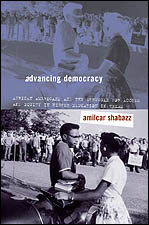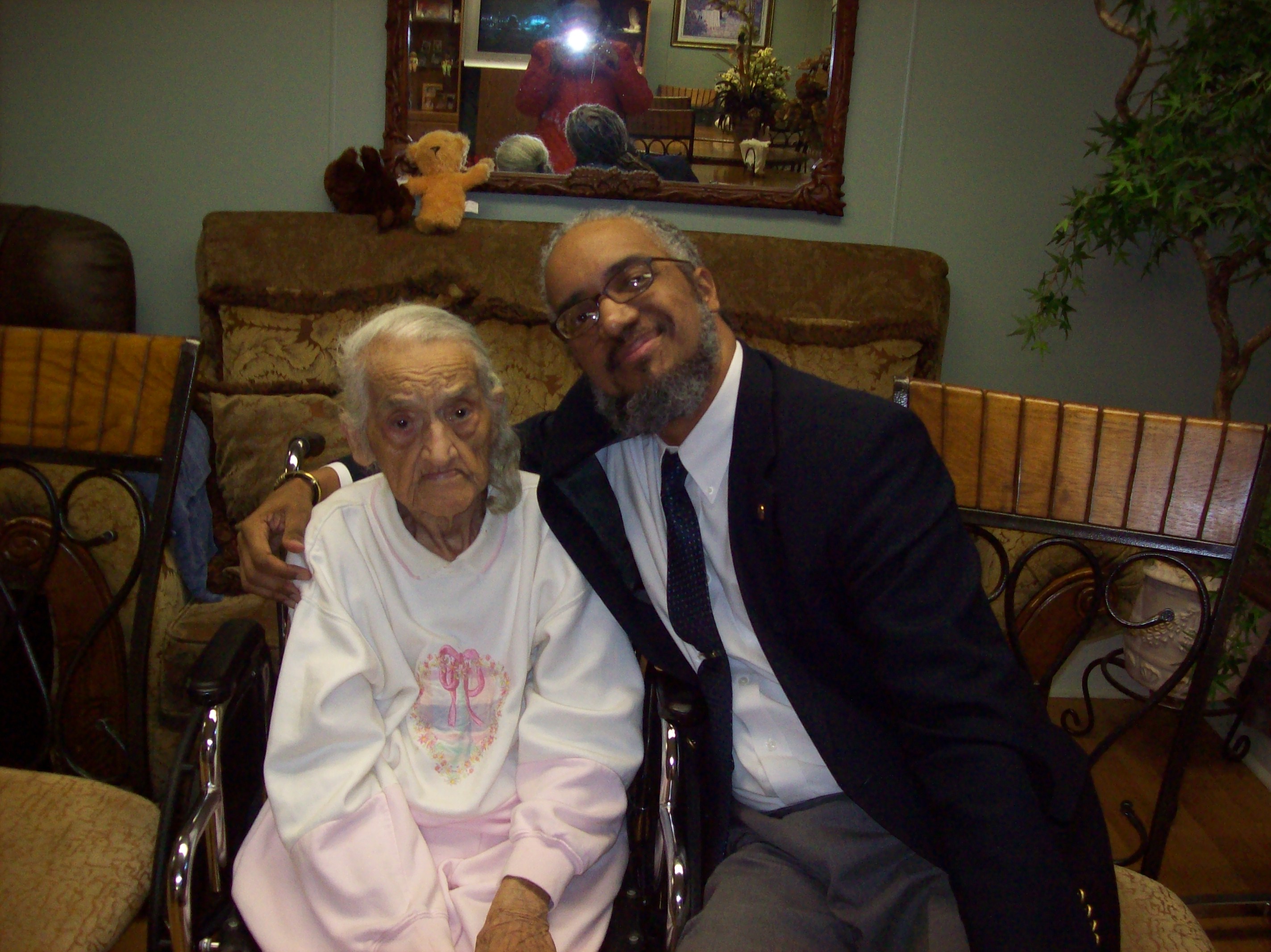 Advancing Democracy: African Americans and the Struggle for Access and Equity in Higher Education in Texas (University of North Carolina Press, 2004) is my first published monograph. Merriam-Webster defines a monograph as a “learned treatise on a small area of learning” or “a written account of a single thing.” Wikipedia is a little more generous in defining it as “a work of writing upon a single subject, usually also by a single author… a work intended to be a complete and detailed exposition of a substantial subject at a level more advanced than that of a textbook.” A large amount of the research for my monograph was gathered and analyzed in the dissertation I produced in order to earn my Ph.D. at the University of Houston (UH). I entered the graduate program at UH knowing I wanted to write about the desegregation of colleges and universities in my home state. I chose to attend UH because Joe Pratt, the finest historian of Texas and of big business (especially of the oil industry in Texas) was there; along with Linda Reed, who had just completed her book, Simple Decency and Common Sense: The Southern Conference Movement, 1938-1963, which concentrated on aspects of the civil rights movement crucial to my chosen area of study; and Guadelupe San Miguel, who had recently published Let all of Them Take Heed: Mexican Americans and the Quest for Educational Equality, a stunning achievement in Mexican American educational history. These three eminent scholars along with the great political scientist and educator Jewel Limar Prestage formed my dissertation committee.
Advancing Democracy: African Americans and the Struggle for Access and Equity in Higher Education in Texas (University of North Carolina Press, 2004) is my first published monograph. Merriam-Webster defines a monograph as a “learned treatise on a small area of learning” or “a written account of a single thing.” Wikipedia is a little more generous in defining it as “a work of writing upon a single subject, usually also by a single author… a work intended to be a complete and detailed exposition of a substantial subject at a level more advanced than that of a textbook.” A large amount of the research for my monograph was gathered and analyzed in the dissertation I produced in order to earn my Ph.D. at the University of Houston (UH). I entered the graduate program at UH knowing I wanted to write about the desegregation of colleges and universities in my home state. I chose to attend UH because Joe Pratt, the finest historian of Texas and of big business (especially of the oil industry in Texas) was there; along with Linda Reed, who had just completed her book, Simple Decency and Common Sense: The Southern Conference Movement, 1938-1963, which concentrated on aspects of the civil rights movement crucial to my chosen area of study; and Guadelupe San Miguel, who had recently published Let all of Them Take Heed: Mexican Americans and the Quest for Educational Equality, a stunning achievement in Mexican American educational history. These three eminent scholars along with the great political scientist and educator Jewel Limar Prestage formed my dissertation committee.
This stellar team and others at UH like Steven Mintz, Emilio Zamora, Marty Melosi, helped me develop my skills as a historian, but the idea that became Advancing Democracy was planted many years before my arrival at UH. Indeed my master’s thesis at Lamar University is a history of Lamar’s desegregation. I began my studies at Lamar many years after completing my B.A. degree at the University of Texas. My first degree was in economics. In fact I took only two classes in UT’s history department (one a kooky American studies type class from Drew McCoy and the other a huge, sage on a stage class by Thomas Philpott). The reason for my move to history, to Lamar, as well as to my hometown of Beaumont after being away for more than a decade had to do with the stories I heard in my childhood. Once I came home those stories got hold of me again and this time they would not let me go. I had to study history and I had to research and write about the struggle for freedom and justice.
 My grandmother, Mama Leah Hebert Saint Julian, was the main source of these stories, but her brother Octave Hebert, my Aunt Zeala Dupree, and others planted stories that got into my soul. Stories of how white supremacy ruled over peoples lives and how brave, maybe even crazy people stood up and said no more to the madness went deep inside and all over me. My way of writing history involves a submission to the power of such stories, to the truth they tell, and the transformation they compel.
My grandmother, Mama Leah Hebert Saint Julian, was the main source of these stories, but her brother Octave Hebert, my Aunt Zeala Dupree, and others planted stories that got into my soul. Stories of how white supremacy ruled over peoples lives and how brave, maybe even crazy people stood up and said no more to the madness went deep inside and all over me. My way of writing history involves a submission to the power of such stories, to the truth they tell, and the transformation they compel.
When I was in the history department and the director of American Studies at Oklahoma State University some producers with a digital media project at the University of Texas contacted me and asked me to participate in a documentary they were making that was to be told through the winning essay this young UT student had written for a competition named for Barbara Jordan. The young man was the grandson of the woman the lawsuit that struck down the legality of Jim Crowism at Lamar was named for: Ms. Versie Jackson. My M.A. thesis, Ph.D. dissertation, and Advancing Democracy all treated her case, but I had never taken the opportunity to find Ms. Jackson and to try to get an interview with her to get her stories. What I had hoped my work would do, however, had happened. It stimulated or encouraged someone to get her story and tell it to others and thereby to preserve it. The documentary was fun to contribute to and its now on YouTube. Click the image below to view the documentary:
It is just a little over seventeen minutes long and is very well done. I’m in it as a talking head or a voiceover here and there. Most touching for me, however, is the part where a picture from the 1950s of my mother, the Hon. Winona Saint Julian Frank, appears. There are more than a hundred stories, some I develop and some I only start the telling of. Still the words of Bob Marley sing true: “Half the story has never been told.” I hope others will help with the work like Versie Jackson’s grandson has done.
I also hope this story offers some transparency about my process of writing history and thereby helps someone on the path of scholarship, becoming a historian, being a writer. There is a place for emotion in the historian’s practice. It is not wrong to love the lives, stories, and meanings you write about. Sometimes it is essential to getting things and getting them right.
Amilcar Shabazz, Amherst, MA
|
|
